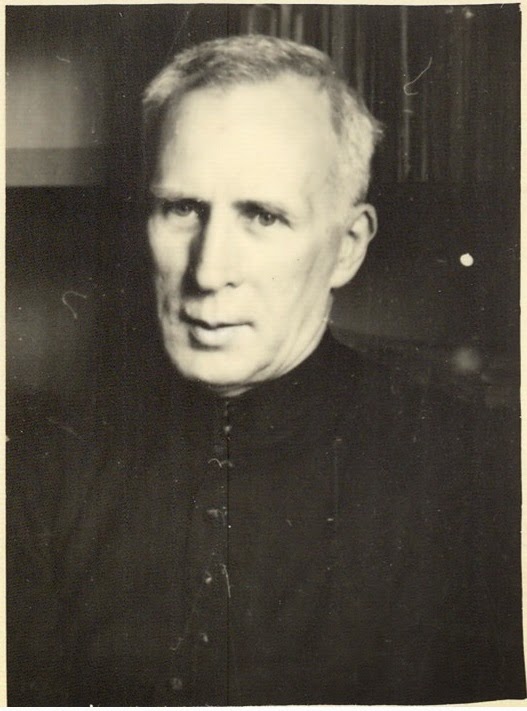 Henri de Lubac, S.J. (1896-1991) was a French Jesuit and one of the greatest theologians of the twentieth century. Born in Cambrai, France on February 20, 1896, he joined the Society of Jesus in Lyon on October 9, 1913. He served in the French army during the First World War, suffering severe wounds in combat. He was educated at the Jesuit Houses of study at Jersey and Fourvière, and then earned his doctorate in theology at the Pontifical Gregorian University in Rome.
Henri de Lubac, S.J. (1896-1991) was a French Jesuit and one of the greatest theologians of the twentieth century. Born in Cambrai, France on February 20, 1896, he joined the Society of Jesus in Lyon on October 9, 1913. He served in the French army during the First World War, suffering severe wounds in combat. He was educated at the Jesuit Houses of study at Jersey and Fourvière, and then earned his doctorate in theology at the Pontifical Gregorian University in Rome. De Lubac was ordained a priest on August 22, 1927, pursued further studies in Rome until 1929, and then became a faculty member at Catholic Faculties of Theology of Lyons, where he taught history of religions until 1961. His pupils included Jean Daniélou and Hans Urs von Balthasar.
In 1942 he co-founded, with Daniélou, Sources chrétiennes, a series of patristic texts with translations. During the Second World War he fought against Naziism and anti-Semiticism through his writings; he would recount those efforts and the efforts of the Church at large in Christian Resistance to Anti-Semitism: Memories from 1940-1944. He was finally forced to leave Lyon because of his involvement in the Resistance; he took refuge in Vals, near Puy.
During the 1950s de Lubac came under suspicion from the Vatican for his teachings about the supernatural and grace. He was eventually obligated to stop publication of his works because of doctrinal objections against his controversial book, Surnaturel. However, he continued his prolific output of other work, including studies on atheism, Buddhism, medieval biblical exegesis, ecclesiology, and the sacramental nature of Catholicism.
He became a member of the Academy of Moral and Political Sciences in 1957 and a faculty member at the Catholic Institute of Paris two years later. He would then participate in Vatican II as a peritus, or theological expert, from 1962-5. The Oxford Dictionary of the Catholic Church states: "De Lubac was one of the thinkers who created the intellectual climate that made possible the Second Vatican Council, largely by opening up the vast spiritual resources of the Catholic tradition which had been cramped by post-Tridentine 'baroque' theology."
De Lubac was created cardinal deacon by Pope John Paul II on February 2, 1983 and received the red biretta and the deaconry of S. Maria in Domnica, February 2, 1983. He died on September 4, 1991, Paris and is buried in a tomb of the Society of Jesus at the Vaugirard cemetery in Paris. His reflections on his life and writings are captured in his book, At the Service of the Church: Henri de Lubac Reflects on the Circumstances that Occasioned His Writings
Source: Ignatius Insight Author Page.
